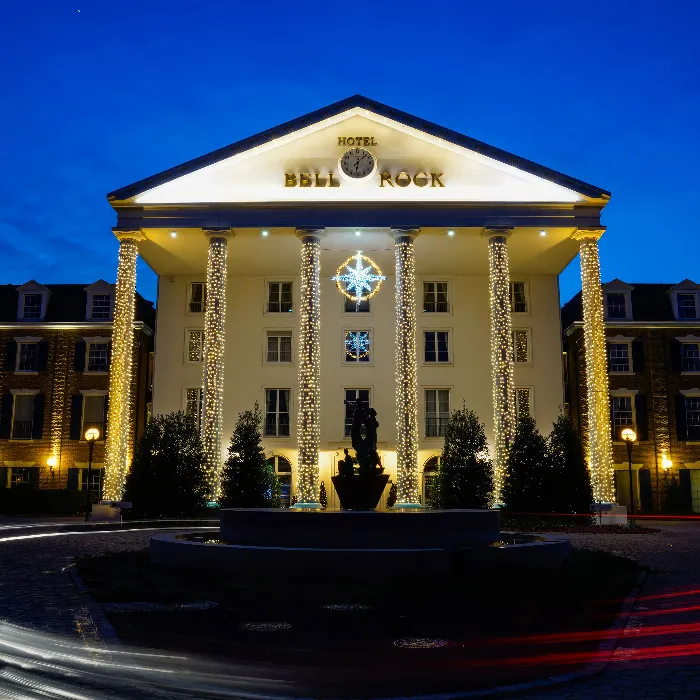The photography of hotel rooms, especially suites, requires a certain know-how. Here you will learn how to capture the architecture and ambiance of a suite in the best way possible. It's not just about the technique but also about choosing the right subjects and using your equipment effectively. Let's dive into the world of hotel photography and learn the art of impactful photographing.
Key insights
- Pay attention to the lighting conditions to achieve the best photos.
- Show off stylish elements to evoke emotions and make the space appear lively.
- Use different perspectives for varied shots.
Step-by-Step Guide
1. Explore the Suite
When you step into the suite, take a moment to grasp the space. Look at the lighting conditions, the furnishings, and the arrangement of the furniture. Ideally, the room should be bright and inviting. Use this first impression for your planning.
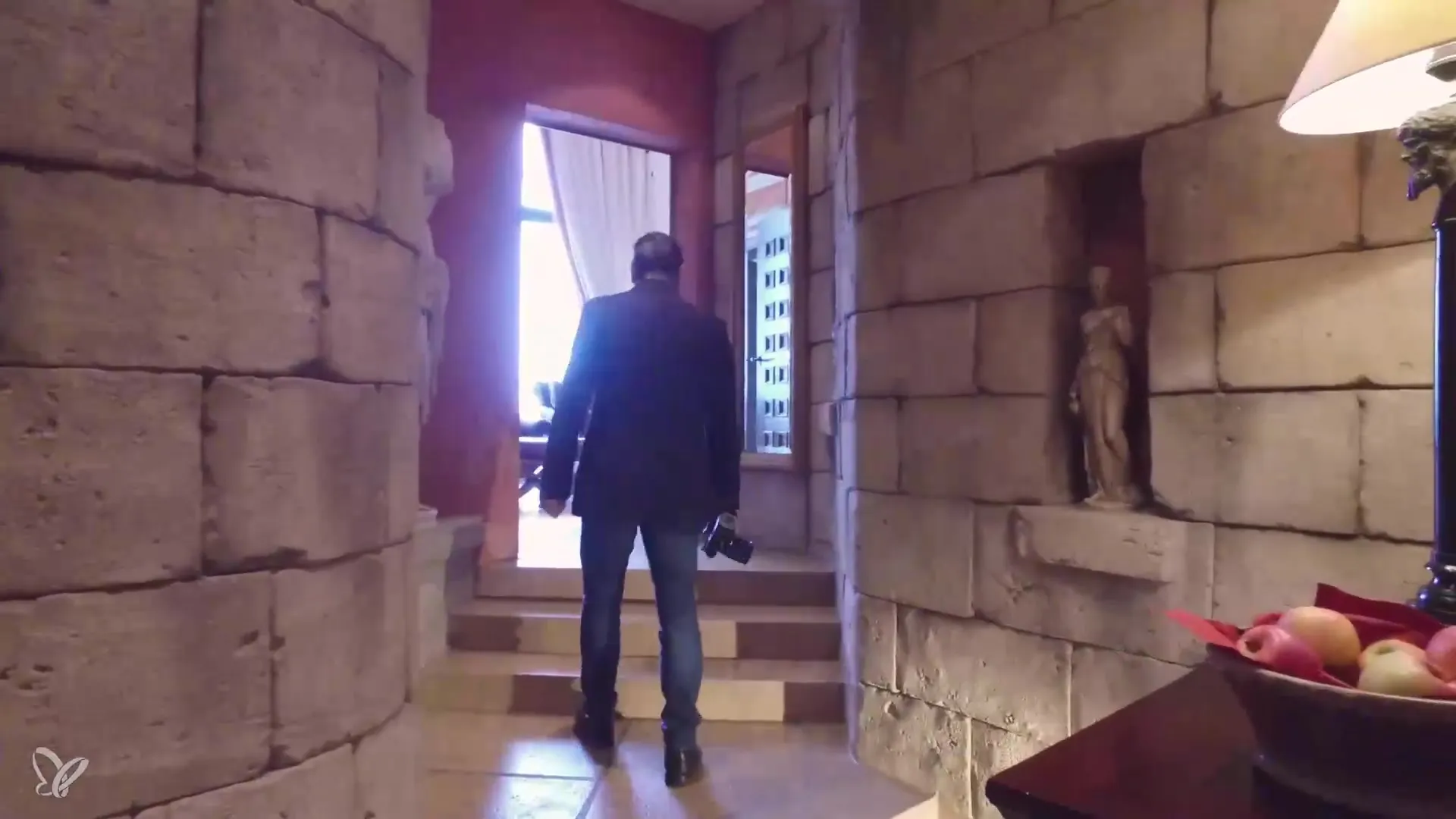
2. Analyze the Lighting Conditions
Pay attention to how daylight enters the room. Often, the best photos are taken in natural light when the room is well-lit. Mix daylight and artificial light to optimally showcase the colors of the furniture and the ambiance.
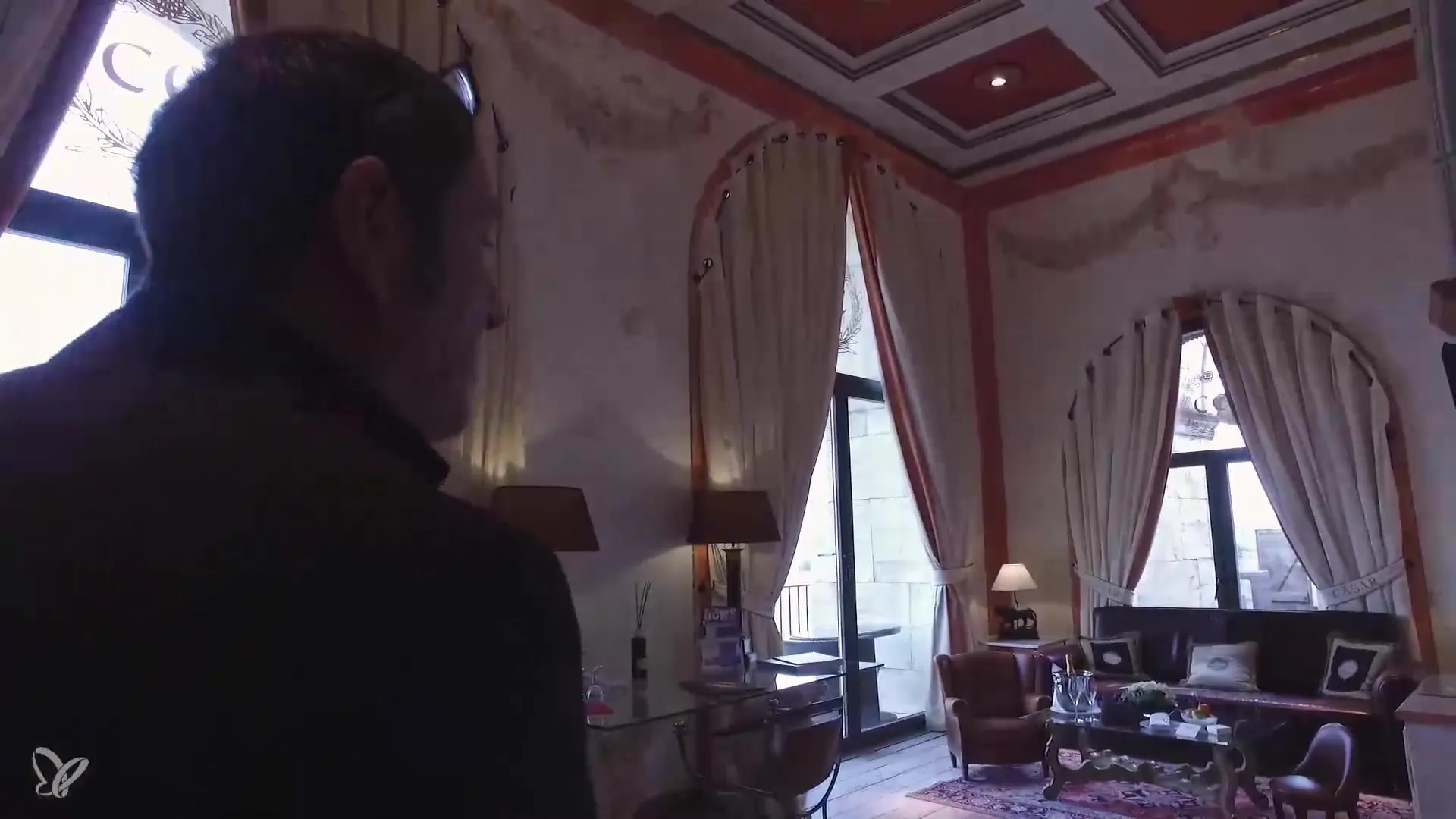
3. Identify Central Elements
Certain design elements can enhance the appeal of your images. In a suite, these are often luxurious details such as floral arrangements, fruit bowls, or fine champagne bottles. Position these stylish objects strategically to improve the composition.
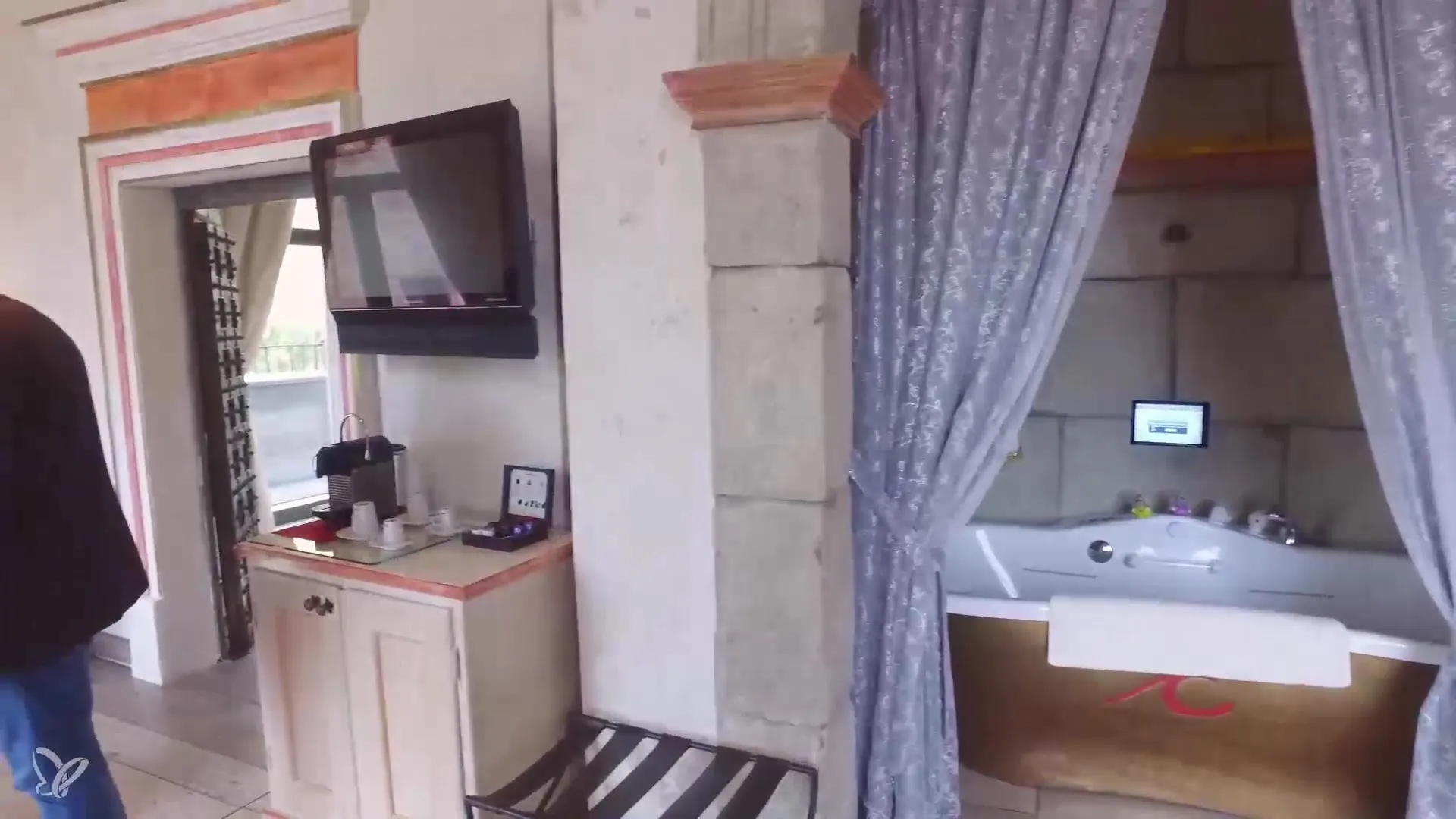
4. Use Different Perspectives
Take photographs from different angles to capture the entire suite. Start with overall views to convey a sense of size and structure. Then find interesting perspectives that highlight the unique furnishings.
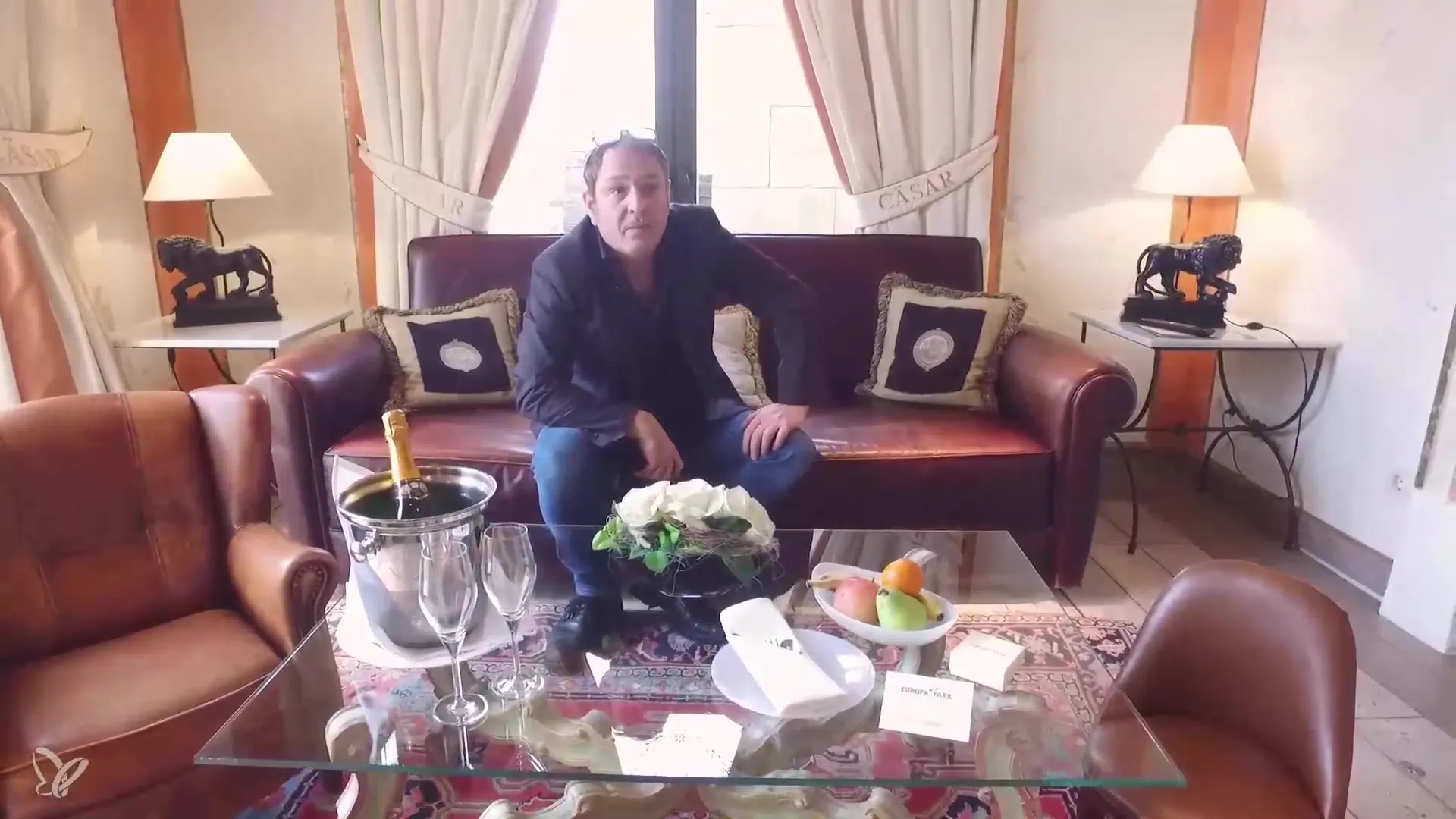
5. Make Detail Shots
Detail shots are crucial to bring the ambiance of the suite to life. Pay particular attention to attractive design elements such as high-quality textiles, solid wood doors, or fancy bathroom fixtures. They help capture the atmosphere of the suite.
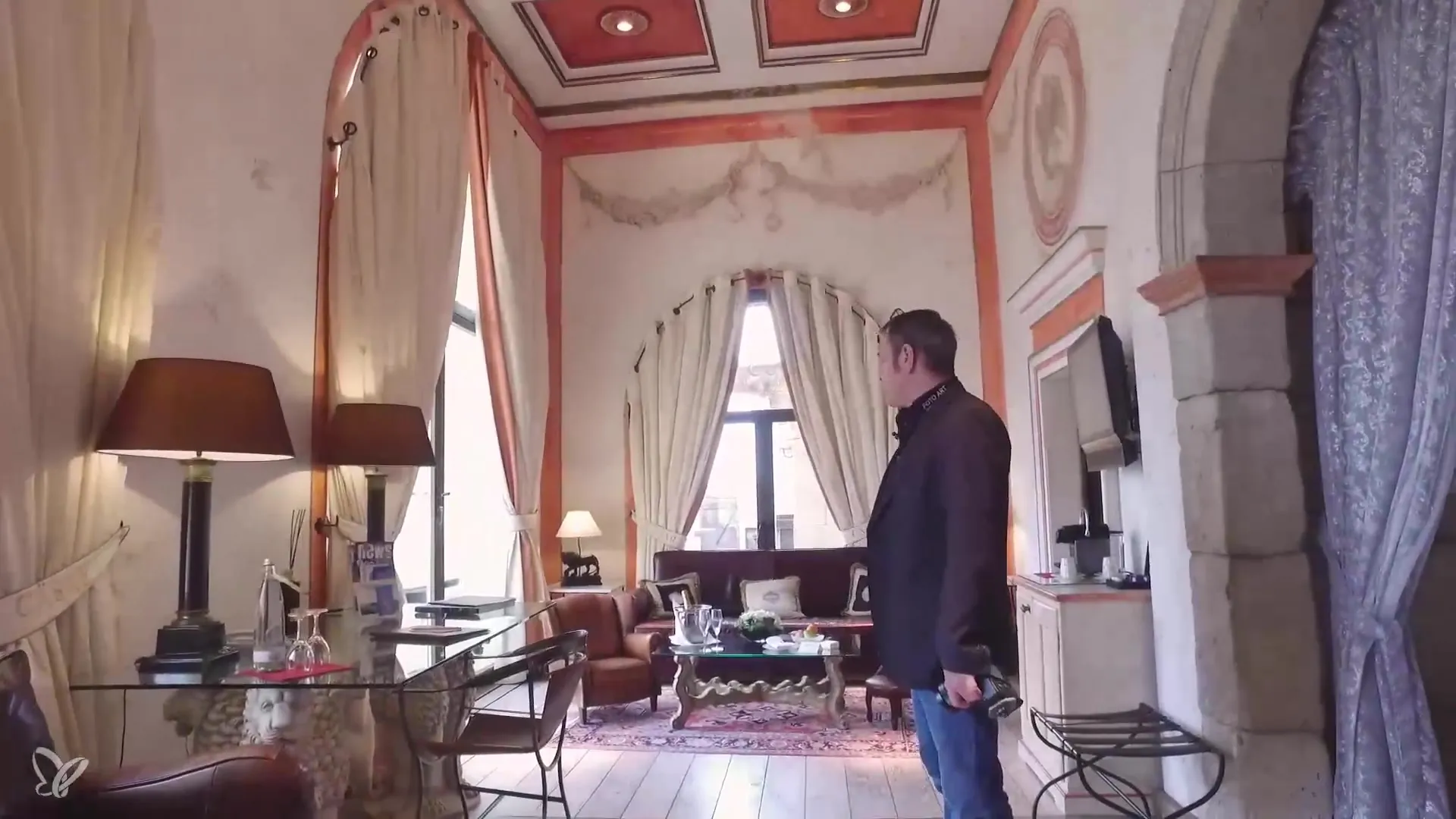
6. Create Atmospheric Arrangements
Let your creativity run free and create still lifes with the decorative elements of the suite. For example, place the champagne bottle and fruit bowl together on a table to achieve inviting compositions. Experiment with the arrangement to achieve the best effect.
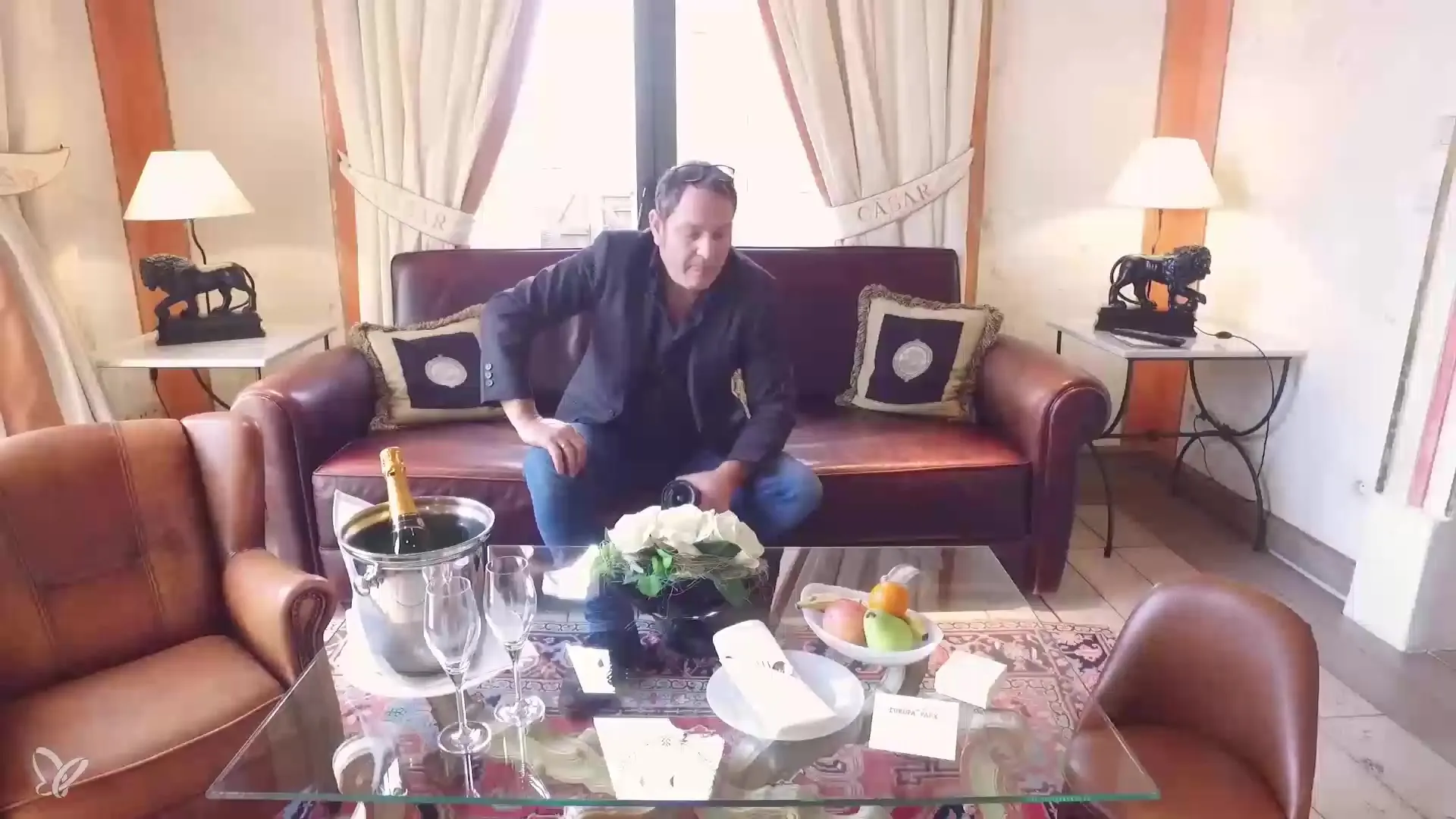
7. Pay Attention to the Light
Especially when taking pictures of bathrooms or darker corners of the suite, it can be challenging to capture sufficient light. Here it is important to find the best angle with the camera and, if necessary, work with additional light sources to avoid shadows.
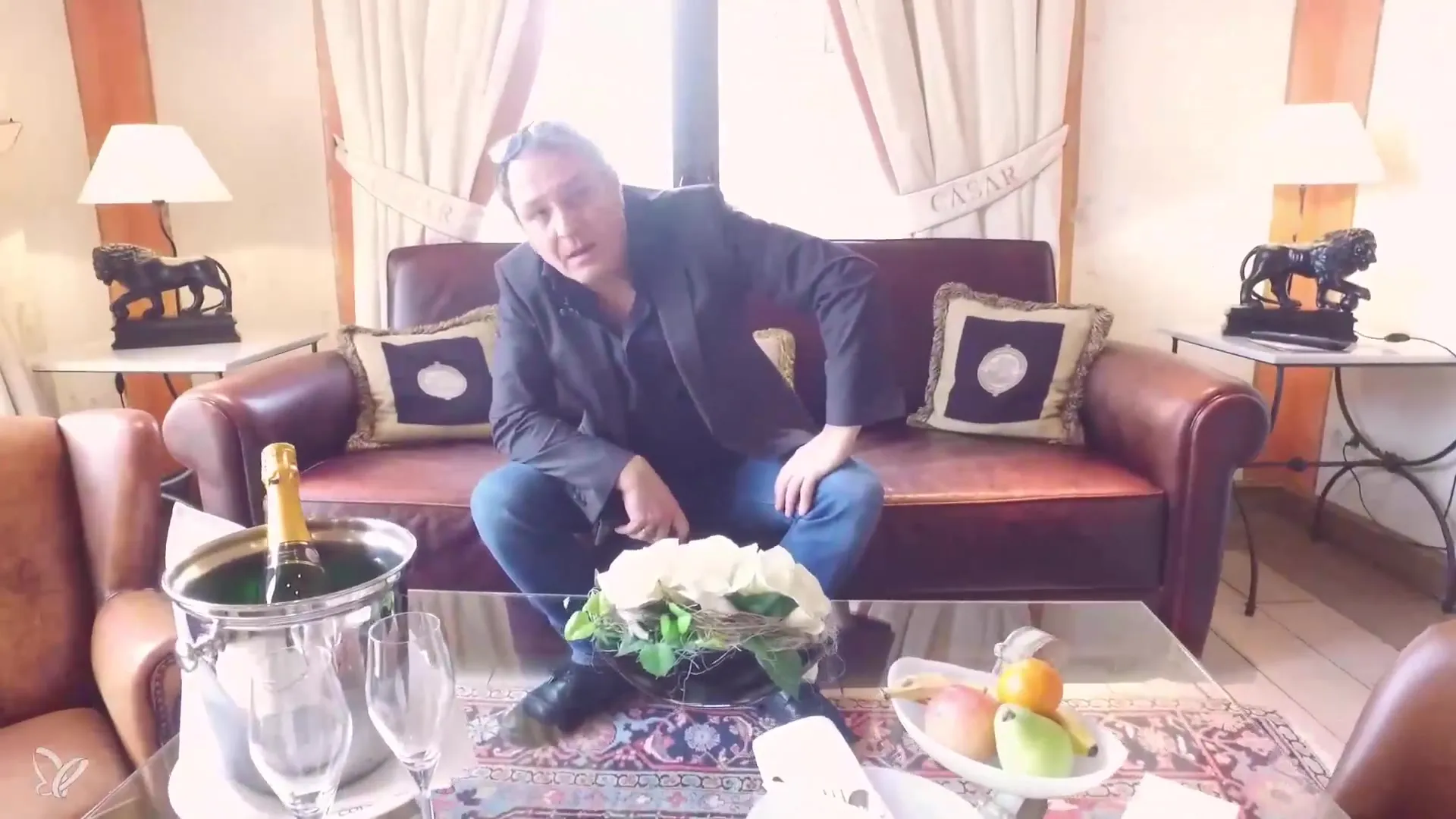
8. Staging the Bedroom
The bedroom is often the centerpiece of a suite. Ensure that you present it well. Make sure the bedding is tidy, and consider adding pillows or other decorations to make the image more lively.
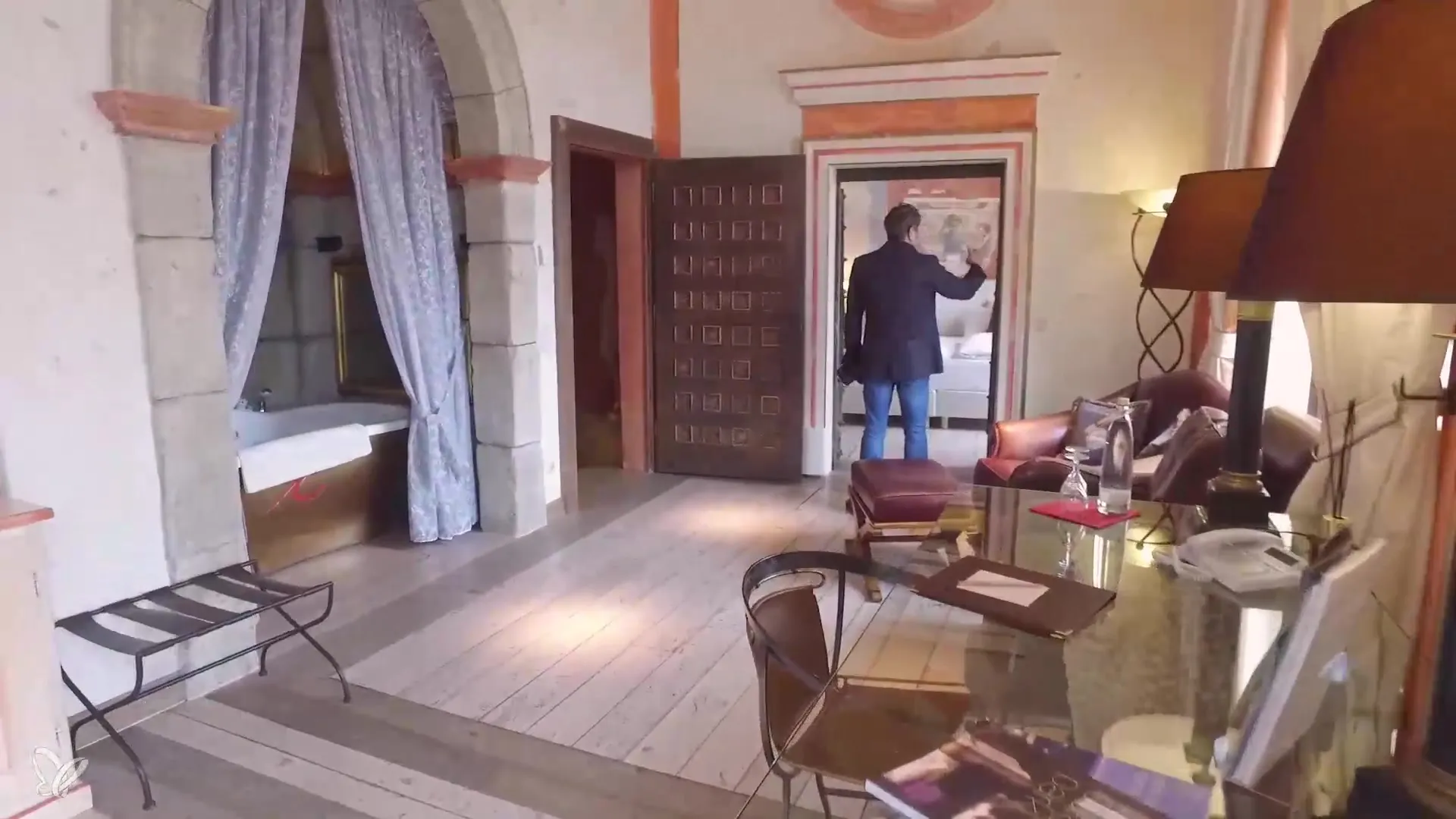
9. Use Equipment
Once you have made all the preparations, get your tripod and camera equipment. A tripod helps you take more stable shots, especially in low-light conditions. Remember to use different lenses to capture the best possible perspective.
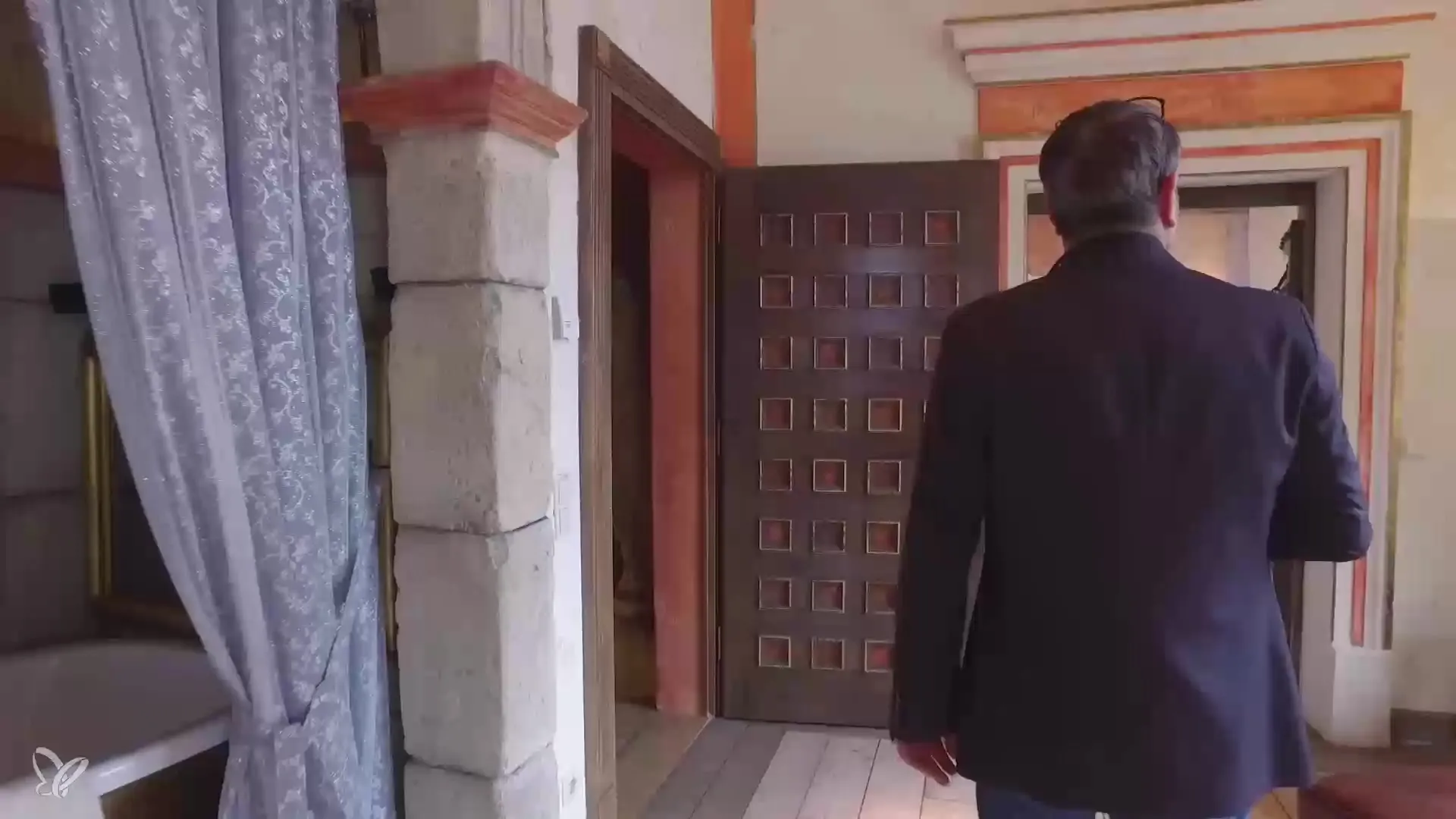
10. Post-Processing the Shots
After you have taken your pictures, review and sort them. Pay attention to which shots turned out best and which may need editing. Good post-processing can significantly enhance the quality of your photos.
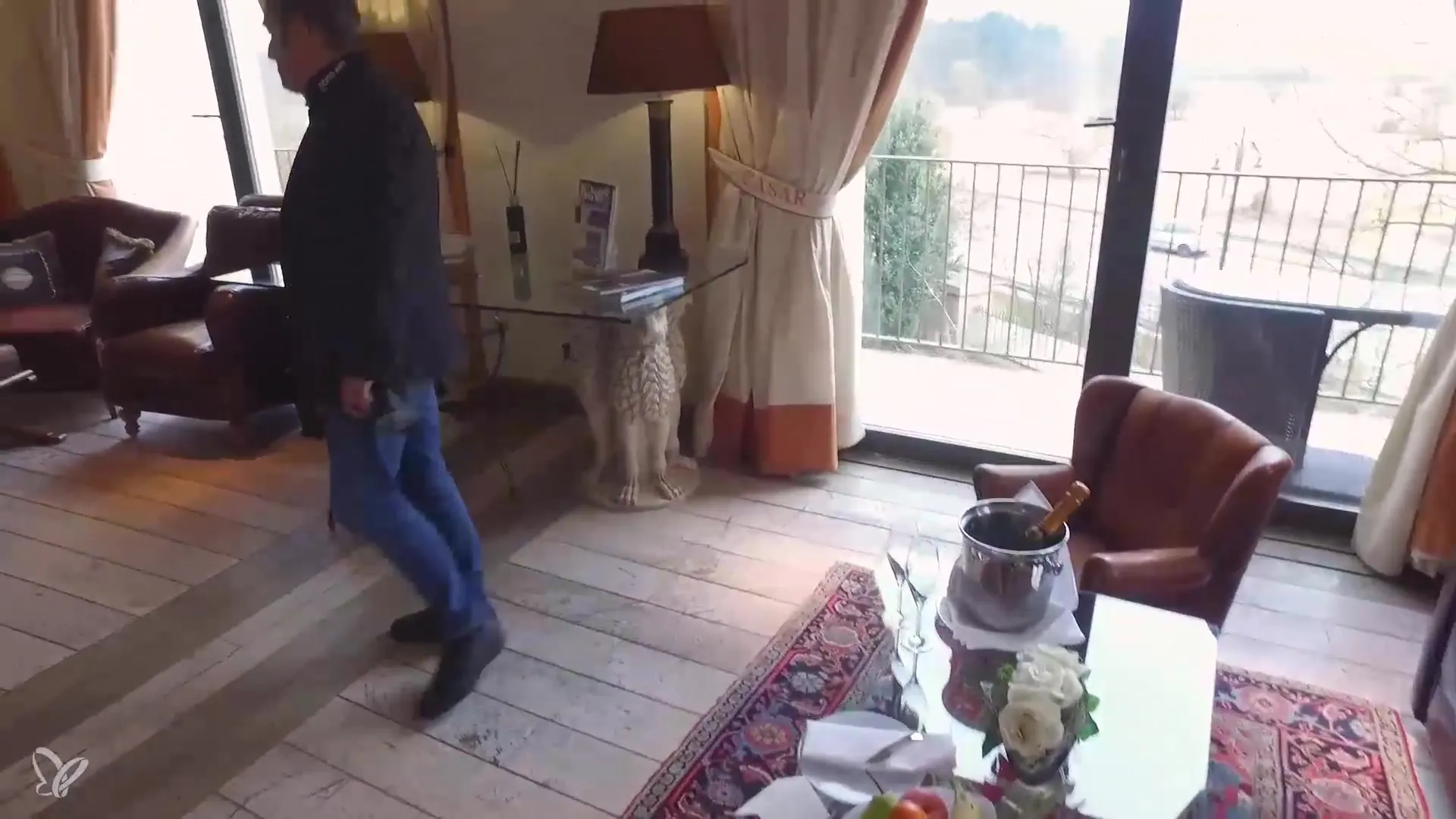
Summary - Guide to Hotel Photography: Effectively Stage Suites
Hotel photography of suites offers a variety of opportunities to capture the atmosphere and comfort of a room. The use of light, the choice of perspectives, and creative arrangements of objects significantly contribute to image quality. By following these steps, you can create impressive photos that attract potential guests.
Frequently Asked Questions
What is the most important factor in hotel photography?The right light is essential for capturing the atmosphere and details of the room.
How many perspectives should I try when photographing?Try to photograph from different angles to represent the diversity and beauty of the suite.
Do I need special equipment?A tripod and various lenses are recommended for achieving the best results.
Can I also work with artificial light?Yes, a mix of daylight and artificial light can help create the best atmosphere.
Should I use an image editing program?Yes, post-processing is recommended to improve the quality of your photos.
